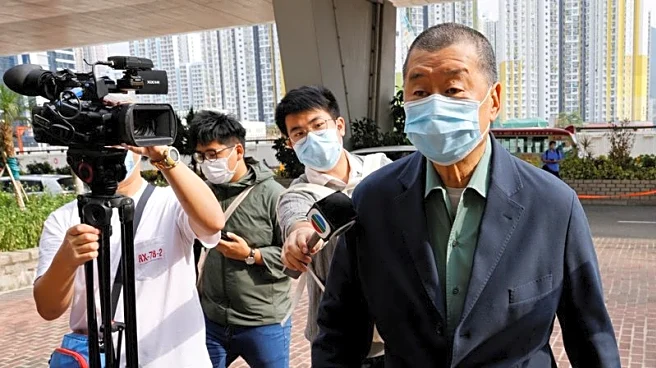What's Happening?
Drew Barrymore, the Emmy-winning host and actress, recently shared a personal health scare on her talk show, The Drew Barrymore Show. During an episode featuring comedian and breast cancer survivor Tig
Notaro, Barrymore revealed that she underwent an 'emergency biopsy' following a 'bad mammogram.' Despite the initial scare, Barrymore assured her audience that she is 'completely fine' now. The discussion highlighted the emotional toll of waiting for biopsy results, a sentiment echoed by Notaro, who has been in remission from breast cancer since 2013. Barrymore's openness about her experience aims to encourage others to prioritize routine health screenings.
Why It's Important?
Barrymore's disclosure underscores the importance of regular health screenings, particularly mammograms, in early detection of breast cancer. Her public discussion may inspire viewers to take proactive steps in their own health care, potentially leading to earlier diagnoses and better outcomes. The conversation also sheds light on the emotional challenges faced by individuals undergoing cancer-related health scares, promoting a broader understanding and empathy. By sharing her experience, Barrymore contributes to destigmatizing health issues and encourages open dialogue about personal health, which can be empowering for many.
What's Next?
Barrymore's continued advocacy for health awareness is likely to resonate with her audience, potentially influencing more individuals to engage in regular health check-ups. The episode may also prompt further discussions on her show about health-related topics, providing a platform for experts and survivors to share their stories and advice. Additionally, Tig Notaro's appearance to promote her documentary could lead to increased awareness and support for cancer-related causes.
Beyond the Headlines
Barrymore's candidness about her health scare highlights the cultural shift towards transparency and vulnerability in public figures, which can have a positive impact on societal attitudes towards health and wellness. This openness may encourage others to seek help and support, breaking down barriers of fear and stigma associated with medical procedures and diagnoses.










